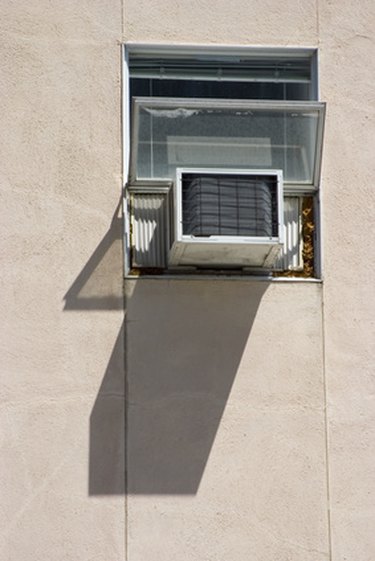
Maintaining the air conditioning system in your home includes cleaning or replacing filters that become clogged and dirty. The air filter in an air conditioning system cleans the air that the system blows into your home. When the filter becomes clogged or dirty, the air conditioning system is less effective and can actually blow dirty air into the house.
Dirty Air Ducts
Video of the Day
When the air filter on a central air conditioning system become dirty, the material is often deposited into the air ducts in the house. It is far more costly to clean or replace ductwork that has become damaged from particulate and dirt than to replace the air filter in the system, which cleans the air before it enters the air ducts.
Video of the Day
Reduced Air Flow
A clogged air filter reduces the amount of air that comes into the system for cooling, which reduces the effectiveness of the unit and limits the amount of airflow in a building or home. Air filters remove particulate before the air is circulated in the home or building. An air conditioning system is designed to work with a specific amount of airflow. When the airflow is reduced due to a dirty filter, the system may fail.
Reduced Effectiveness
A dirty filter can lead to dirty fan blades and cooling coils in the system. When the cooling coil is covered with dirt, the result is a buildup of frost on the unit, which reduces the air conditioning unit's ability to cool the air. When the air conditioning unit must run longer to maintain a cool temperature in the home, energy use will skyrocket along with your energy bills.
Allergens
A dirty air conditioning filter that causes the ductwork in the home to become dirty and clogged with particulate from the air can lead to mold and allergens. The indoor pollution can lead to symptoms such as fatigue, coughing, eye irritation, headache, sore throat, wheezing, congestion and a tight feeling in the chest. Reducing the allergens and irritants in the air may help to reduce the symptoms.